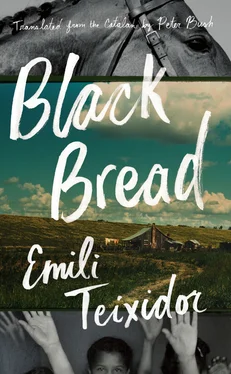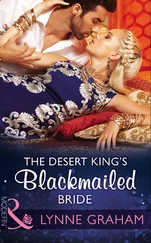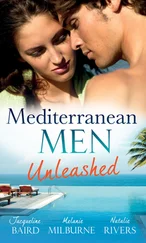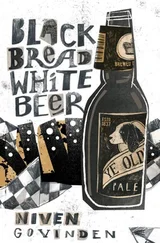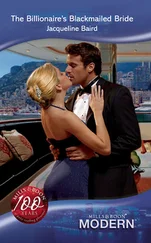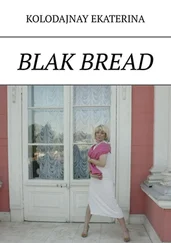“A shepherd can do without almost anything,” he’d say, “even food, but not his dogs.”
Unlike dogs, stallions and mares coupled more spectacularly and nobody could remain oblivious. It was almost the same as when they brought a cow to the bull, something they wouldn’t let us watch or did when we were in class. They occasionally brought in a stud from outside, along with a vet and a couple of hands to ensure the male didn’t hurt the female; they said he could rip her if he didn’t take care. Quirze had been present at one of these mountings, as they called them, and later when he told us all about it, he used his forearm to describe the animal’s thrusting. He said they forced the bull to cover the cow.
Grandfather Hand had told us that the rebec, an ancient, single-stringed wooden instrument, was made from hair from a stallion’s tail and never a mare’s, the mare’s was no use, and we’d put that riddle to Oak-Leaf: “Why the stallion’s and not the mare’s? Because the mare’s hair goes rotten from piss, you fool! They wouldn’t withstand the bow’s movements, they’re as rotten as the TB boys in the monastery. Stallions piss straight and clean!”
And then she’d tell us, to show she was better informed than we were, why in the old days the boys played the zambomba drum in fiestas and the girls the mortar, and never the other way round.
Quirze waved his hand and laughed: “It’s the same story as the hair from the stallion’s tail, the drum is further away than the mortar. Only boys can handle the zambomba !”
The worst of the birds was the night owl. When it shrieked it brought on the shivers and meant someone was dying and the friars staggered out of the monastery in trepidation to go and give a dying individual the last rites. There were also sparrows, nightingales, swallows, finches, greenfinches, goldfinches…that a lot of villagers hunted in the woods with all kinds of wires, traps and pincers, and then they burnt their eyes out so they’d sing more sweetly and win prizes and cups in the competitions organized in local villages.
“Bugger me, if it isn’t time for the quails to sing,” said Uncle Bernat, when he prepared the fine green netting in early June that he put over the corn before he hid himself and blew through a hollow bone in a woollen sleeve to imitate the female’s cry, and when the male flew down, he pounced, the net fell and it was trapped. He also hunted with a coat hanger.
The salamanders that came out by the spring were the little beasties in the forest that most frightened us with their lurid black and yellow skins; they were wetter and stickier than lizards, and people said they came from hell and that was why they could walk over flames or embers without burning themselves. They were creatures of fire, like dragons. Snakes scared us too, and foxes and toads, all reptiles, in fact, though not Quirze, he’d pick them up as cool as anything and kill the snakes with a blow from a stick.
We played with crickets, and when we found a nest, Quirze peed in the hole so it flooded and the panicking crickets crawled out or drowned. Quirze stood with his back to us to pee and the girls would walk away or turn their heads, embarrassed to see Quirze with his fly open. He would summon me to his side: “Andreu! Come here, so we can make more water! The girls would have to crouch down and they’d never hit the hole, they’d spray it around like hens.”
We cut the tails off lizards and waited to see if it was true that they grew back straight away. We hunted flies and insects and put them in the middle of the cobwebs spiders had spun between leaves and branches and watched the weaver shoot out of his hideout, wrap them in a white gauze of saliva and down them there and then or take them away and hang them by a thread. We’d block the entrances to anthills to see how frantic the line of ants got that didn’t know where it should go, as if they’d been driven crazy. We caught butterflies with our fingers, by waiting for them to close their wings when they settled on a flower or a leaf in the meadow, and afterwards, if we liked their colours or patterns, we’d press them hard between the pages of a book, and announce we had embalmed them forever, as we shook off the powder their bright, dusty wings had left on our fingertips…
One day, when I’d been staying on and off for almost two years on the grandparents’ farm, or at Granny’s, as Mother sometimes said, we found a dead horse in a small field on a bend in the track round the woods, mid-point between the farmhouse and the Novíssima school. That obstacle by side of the track was a peculiar sight from afar, like a heap of dung.
It was one of those autumn mornings when the countryside was a misty blue as if the sun hadn’t the strength to disperse the nighttime dampness. As we drew nearer to the bend, we got a whiff of a dung-like smell that gradually became unbearable, and heard a cloud of flies and other insects buzzing that was unusual for the time of year.
From closer up, we thought it was a mound of red earth swarming with ants. Then we saw four legs dwarfed by a bulging belly and liquid and guts sluicing out. We only spotted the head, the gaping, foaming mouth, the huge, magnolia-white teeth, and the only eye we could see, like an open flower, when we got closer to the carcass, because it was half-buried under clumps of dead grass, separated from its body by a long, narrow neck. The size of its swollen body also helped to conceal its head.
The three of us observed the carcass in respectful silence. It wasn’t one of ours, for sure, because we know all our animals by name, just as the dogs did.
We decided that if the people on the farm knew nothing about it, we should rush to school in case they could shed some light. Perhaps it came from a stable on a neighbouring farm.
“There’s a dead horse with its guts hanging out on the track,” Quirze told Mr. Madern the teacher, when he’d finished the ritual prayers, called the register and everyone was thinking about opening their desks and starting on handwriting exercises. Apparently nobody was aware of the dead horse.
The teacher only said: “I expect you mean injured. Animals sometimes suffer attacks of exhaustion or congestion, like human beings. Horses have strong hearts, but they can also give up on them when they’ve had enough. Its owners will call the vet, if needs be.”
Quirze looked at me and at Oak-Leaf — we didn’t know whether she’d seen the horse or not — as if he was wondering whether we felt like adding anything, but we didn’t. Girls and boys were in the same class, it was a deal Miss Pepita and Mr. Madern had reached, because the dopey ex-nun only wanted the little ones, as she was frightened by the bigger children she couldn’t handle. Of course, they’d warned us that if an inspector ever called, we’d have to separate out, boys with boys and girls with girls, because mixed education was banned. But there weren’t many of us at the Novíssima, we all knew and trusted each other, and there was no need for precautions. Cry-Baby was still one of Miss Silly’s little’uns.
The teacher decided to start the day off with a dictation and while he was walking between our desks, holding the book he was reading in one hand, we heard voices, people running and cars driving up and down the road that went past the front of the Novíssima. Mr. Madern stuck his head out of the window, then gave the book to Gamundi, the brightest boy in the class, so he could continue the dictation, while he went and spoke to the infant teacher in the classroom next door.
Gamundi was a boy from the Basque country who’d come to the district as a refugee during the war and stayed on after being adopted by a farming family, and he did his best to keep order but our eyes were all riveted to the window and the busy road. The schoolteacher and mistress had gone to the small garden by the entrance and were talking to a couple of civil guards. When Mr. Madern came back, he stared at Quirze and rasped: “You should’ve said it was a horse that had been disembowelled and abandoned. Heaven knows who it belongs to. I expect it was gypsies who ran for it, or animal thieves who’d ridden it into the ground…”
Читать дальше
